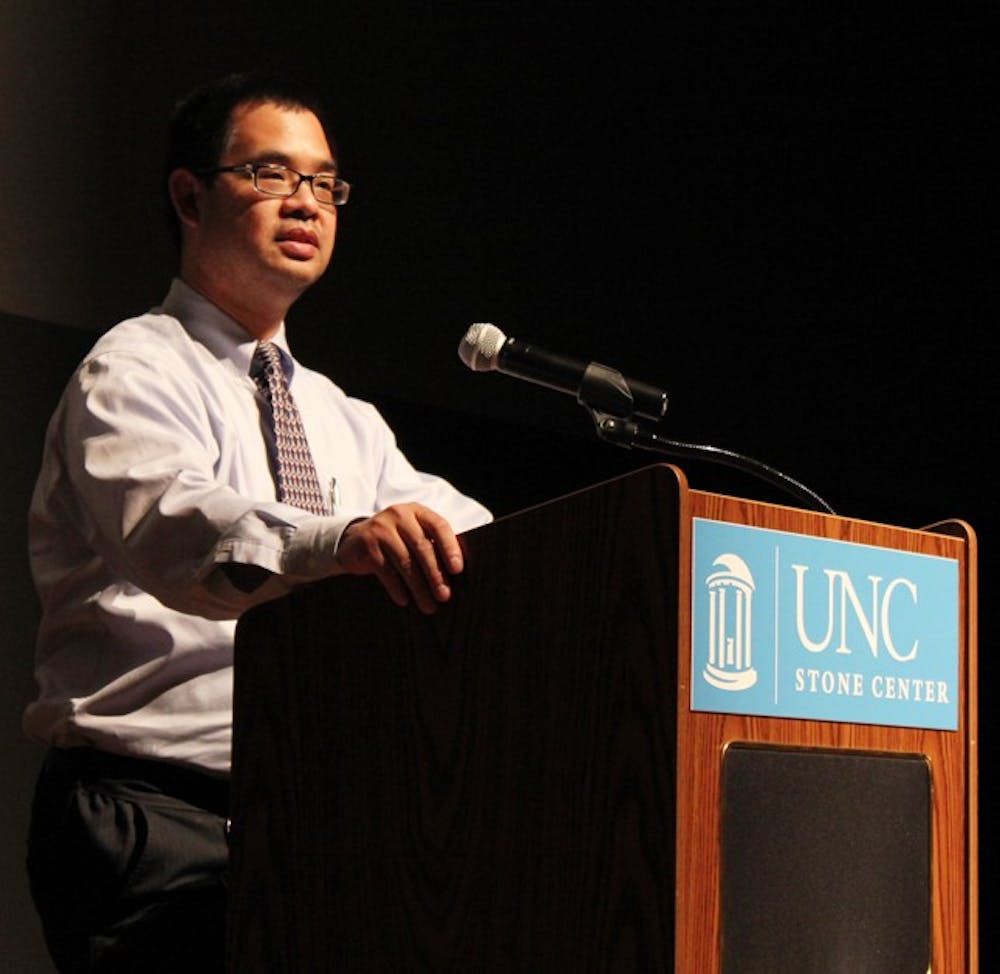When the UNC Muslim Students Association invited Chaplain James “Yusuf” Yee to speak, some members were not prepared for his insider’s view of Guantanamo Bay detention camp.
Yee, a 1986 graduate of West Point, was the one of the first Muslim chaplains in the U.S. military when he assumed the role in January 2001.
Following 9/11, Yee assumed a role as a media representative for the U.S. military. It was his success in speaking about Islam in this post that led to his appointment as chaplain of Guantanamo Bay.
Yee served as chaplain for the 660 inmates, all of whom were Muslim, as well as American Muslims serving as translators at the camp.
“I was one of the very few individuals allowed to speak freely to the prisoners,” he said.
During his lecture, hosted by the MSA and attended by more than 40 students and faculty, Yee described the abuses that inmates suffered at the hands of intelligence officers at Guantanamo.
“Prisoners would complain about being persecuted — persecuted for being Muslim,” he said. “Intelligence personnel used religion as a weapon against prisoners.”
Yee described cases in which inmates were forced by personnel at the camp to kneel in a “satanic circle” and renounce Allah. His presentation also featured photographs showing the sensory deprivation that some inmates were forced to endure.
After hearing accounts of abuse from inmates, Yee approached his superiors. At the time, he felt his input was valued and received stellar performance reviews, he said.




